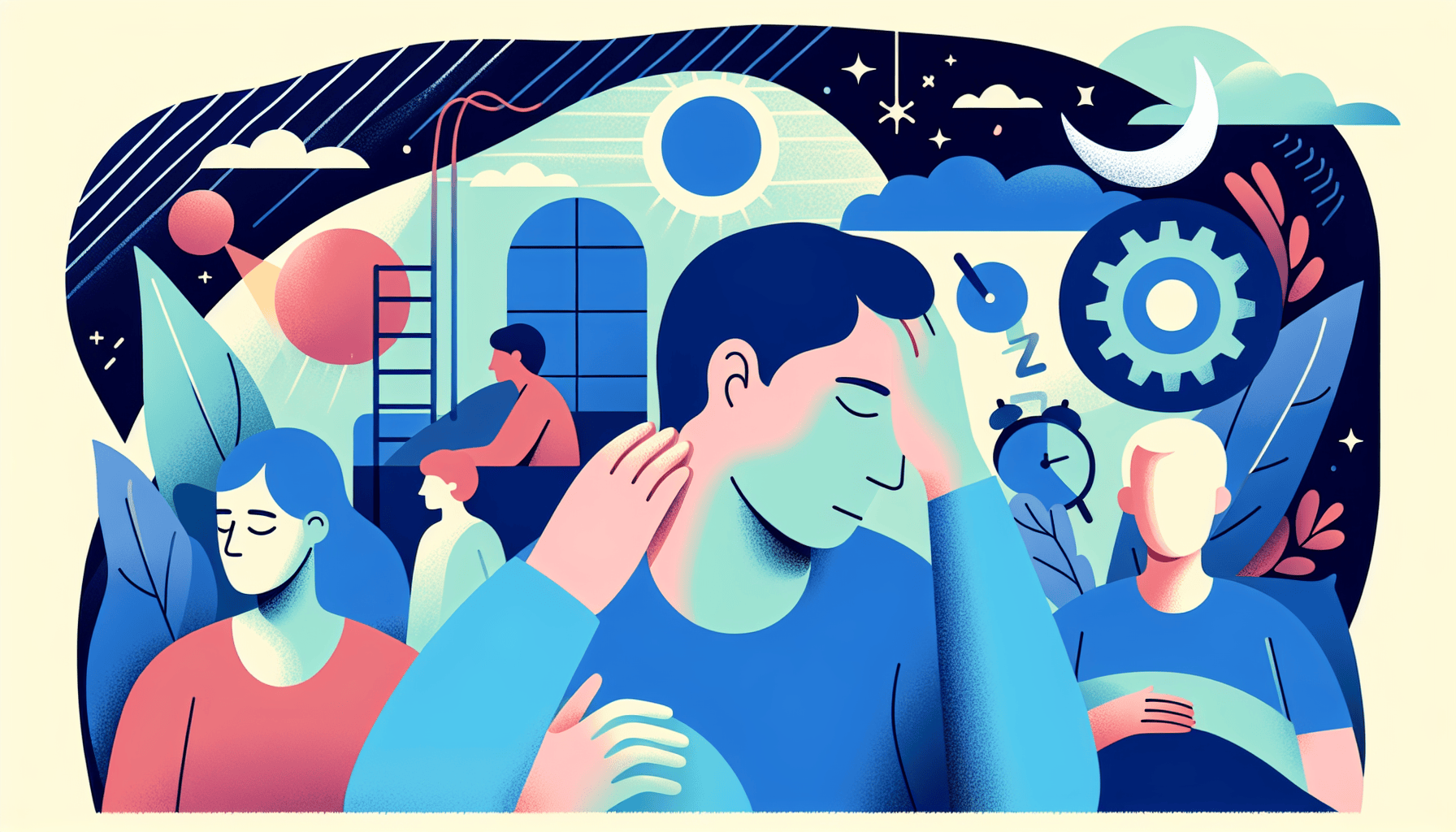Insomnia is a sleep disorder that affects millions of people worldwide. If you have trouble falling asleep or staying asleep, you may be experiencing insomnia. This condition can be short-term (acute) or long-term (chronic) and can significantly impact your daily life. In this article, we'll explore the causes, symptoms, and treatment options for insomnia.
What is Insomnia?
Insomnia is a sleep disorder characterized by difficulty falling asleep, staying asleep, or both. People with insomnia may also wake up too early and have trouble getting back to sleep. Acute insomnia lasts from one night to a few weeks, while chronic insomnia occurs at least three nights a week for three months or more.
Types of Insomnia
There are two main types of insomnia:
Primary insomnia: This type of insomnia is not linked to any other health condition or problem.
Secondary insomnia: This type of insomnia is caused by an underlying health condition, such as asthma, depression, arthritis, cancer, or heartburn. It can also be caused by pain, medication, or substance use, such as alcohol.
Causes of Insomnia
There are many potential causes of insomnia, including:
Stress related to significant life events, such as job loss, divorce, or the death of a loved one
Environmental factors, such as noise, light, or temperature
Changes to your sleep schedule, such as jet lag or a new work shift
Genetic predisposition to insomnia
Mental health issues, such as depression and anxiety
Medications for colds, allergies, depression, high blood pressure, and asthma
Pain or discomfort at night
Caffeine, tobacco, or alcohol use, as well as the use of illicit drugs
Other health conditions, such as hyperthyroidism, sleep apnea, restless legs syndrome, pregnancy, Alzheimer's disease, ADHD, PMS, and menopause
Symptoms of Insomnia
The primary symptoms of insomnia include:
Difficulty falling asleep at night
Waking up frequently during the night
Waking up too early in the morning
Feeling unrefreshed or tired upon waking
Daytime fatigue and sleepiness
Irritability and mood disturbances
Difficulty concentrating or remembering things
Diagnosing Insomnia
To diagnose insomnia, your doctor will perform a physical exam and ask about your medical and sleep history. They may ask you to keep a sleep diary for a week or two to track your sleep patterns and daytime symptoms. In some cases, your doctor may recommend a sleep study at a specialized sleep center to rule out other sleep disorders.
Treatment Options for Insomnia
Treatment for insomnia depends on the underlying cause and the severity of the condition. Some treatment options include:
Behavioral therapy: This type of therapy can help you identify and change behaviors that contribute to insomnia, such as poor sleep habits or negative thoughts about sleep.
Medication: In some cases, your doctor may prescribe short-term use of sleeping pills to help you fall asleep and stay asleep. However, these medications can have side effects and should be used with caution.
Treating underlying conditions: If your insomnia is caused by an underlying health condition, such as depression or sleep apnea, treating that condition may help improve your sleep.
Preventing Insomnia
Adopting good sleep habits, also known as sleep hygiene, can help prevent insomnia. Some tips for improving sleep hygiene include:
Sticking to a consistent sleep schedule
Creating a relaxing bedtime routine
Avoiding caffeine, alcohol, and nicotine close to bedtime
Exercising regularly, but not too close to bedtime
Creating a comfortable sleep environment
Limiting screen time before bed
If you're struggling with insomnia, don't hesitate to talk to your doctor. With the right treatment and lifestyle changes, you can improve your sleep and overall quality of life.
For more information on insomnia and sleep health, visit:
The Bottom Line
Effective treatment focuses on behavioral changes and addressing root causes rather than relying primarily on sleep medications. The most successful approach combines sleep hygiene improvements with CBT-I techniques and treatment of any underlying medical or psychiatric conditions. If you're struggling with persistent sleep difficulties or daytime fatigue, Doctronic can help you understand your symptoms and explore treatment options.



